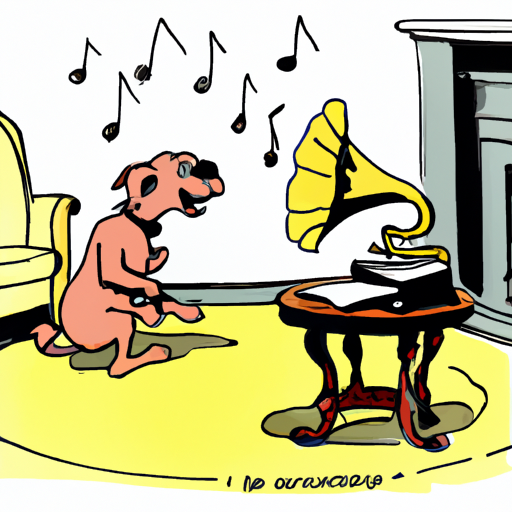Understanding Your Dog’s Ancestry
You’ve probably noticed that dogs have a peculiar habit of howling along with music. To understand why, we need to delve into their ancestry. Dogs are descendants of wolves, which are known for their melodious howls. This primal instinct is still apparent in our domesticated companions. Wolves use howls to communicate over long distances, asserting their presence, and calling their pack. Does this mean your furry friend sees you as their pack? Absolutely!
The Science Behind Your Dog’s Howl
The howl of a dog is not just a random noise, but a complex communication method with a frequency that can vary. In fact, the pitch of your music might be triggering your dog’s response. Canine communication involves a range of vocalizations, including barks, whines, and yes, howls. The latter can be influenced by various factors:
- Pitch: Higher pitches can trigger a dog’s howl.
- Volume: Loud noises might prompt your dog to respond.
- Rhythm: Some dogs might howl when they recognize a particular beat.
The Emotional Connection
Canines are emotional beings. They possess a rich emotional life, and music can elicit a range of responses. For instance, your dog might howl out of excitement or even distress. It’s essential to observe your dog’s behavior carefully. If they seem agitated or stressed when howling, it might be a sign that the music is too loud or the rhythm too intense.
Here’s what you can look for:
- Tail Wagging: Indicates excitement or happiness.
- Panting or Drooling: An indication of stress.
- Pacing or Restlessness: Could mean discomfort.
The Role of Breed
Interestingly, not all breeds are prone to howl. Breeds that are closely related to their primal ancestors, such as Siberian Huskies or Alaskan Malamutes, are more likely to howl.
Here’s a helpful table to give you an idea:
| Breed | Likelihood of Howling |
|---|---|
| Siberian Husky | High |
| Alaskan Malamute | High |
| Dachshund | Medium |
| Beagle | Medium |
| Labrador Retriever | Low |
Mitigating Unwanted Howling
If your dog’s howling becomes a nuisance, there are various methods to mitigate it. The first step is identifying the trigger. If it’s a particular song or genre, simply avoiding it might solve the issue. Otherwise, positive reinforcement (rewarding your dog for staying quiet) can be an effective method.
Remember, it’s important not to scold or punish your dog for howling. It’s a natural behavior, and they’re simply expressing themselves!
FAQ Section
1. Why does my dog howl when I play the piano?
Your dog might be howling in response to the high pitch of the piano.
2. Is my dog in distress when they howl to music?
Not necessarily. Observe their behavior for signs of distress such as panting, drooling, or pacing.
3. How can I stop my dog from howling at music?
Identify the trigger and use positive reinforcement to discourage howling. Avoid scolding or punishing them.
4. Do all dogs howl at music?
No, not all dogs howl at music. The behavior varies depending on their breed and individual personality.
5. Can howling be a sign of a health issue?
While howling is usually a form of communication, excessive or unusual howling can sometimes indicate a health issue. Consult your vet if you’re concerned.



